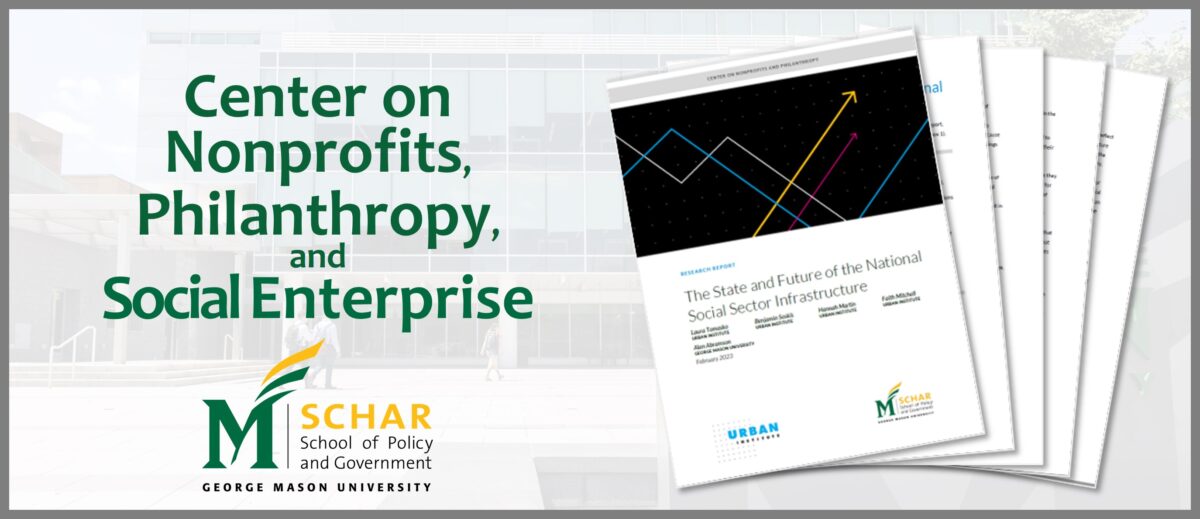
Nonprofits and other parts of the U.S. social sector need a healthy support system in order to thrive. How is that support system—or infrastructure—doing? I’ve been pleased to work with colleagues from the Urban Institute and George Mason University on an extensive study of social sector infrastructure: what it is, how it’s financed, its current state, and what it needs to do its work in the years ahead.

Dr. Alan Abramson, Founding Director of GMU’s
Center on Nonprofits, Philanthropy, and Social Enterprise
February 27 – March 3 marked the first ever Social Sector Infrastructure Week. The Center on Nonprofits, Philanthropy, and Social Enterprise participated in the week by releasing three new reports in partnership with the Urban Institute’s Center on Nonprofits and Philanthropy. The new reports represent the second phase of the joint project and examined the state of this vital infrastructure, its financing, and the ways it might need to evolve for the future. They join three reports from the first phase of the project, which focused on developing an expansive definition that captures the full breadth of the social sector and its infrastructure. All six reports are available on the Urban Institute website and are linked below.
Phase one reports
- The Social Sector Infrastructure: Defining and Understanding the Concept
- A report on the development of our definition of social sector and the social sector infrastructure
- The Social Sector Infrastructure Infographic
- A one-pager defining social sector infrastructure and visually representing its supports and services
- Exploring the Social Sector Infrastructure Feature
- An interactive tool to explore the key components of the social sector infrastructure:
- The Social Sector: who the infrastructure serves
- Supports and Services: what the infrastructure provides
- Infrastructure Providers: who provides these services
- An interactive tool to explore the key components of the social sector infrastructure:
Phase Two Reports
- The State and Future of the National Social Sector Infrastructure
- A report on the state of the national social sector infrastructure and how to strengthen it.
- An Overview of the Financing of National Social Sector Infrastructure Providers
- A report on the overall size, revenue structures, and financial health of national social sector infrastructure providers incorporated as nonprofits.
- A Guide to Strengthening the National Social Sector Infrastructure: Objectives and Action Steps
- A guide offering overarching objectives and action steps for strengthening the national social sector infrastructure.




